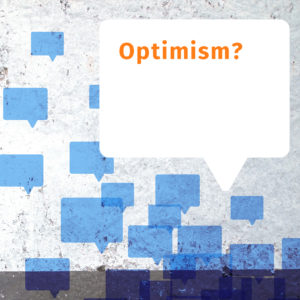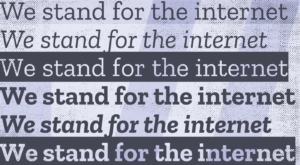By now, we hope that you are familiar with how Mozilla is applying its open-source ethos to designing a new brand look (Designing in the Open). Will this quixotic quest land or flame out?
So far, so good. We held an open house at a Mozilla all-hands meeting last week, and 150 Mozillians showed up to offer passionate (and contradictory) feedback. We shared some background on why brand matters and put up seven possible themes we could follow to craft initial concepts.
Next, we spun up this blog and a Medium channel to engage designers. The story got picked up by FastCo and Engadget, who covered it fairly. We’re getting a steady flow of comments from folks interested in vetting the seven themes, contributing their ideas, or critiquing this never-been-tried process. A few have mistaken what we’re up to (more on that below), but it’s net positive.
What we’ve learned.
Overall, Mozillians are hungry for a strong, distinct brand. They want us to be better known and understood—and recognize how a brand refresh can help. Their feedback pointed to two minor refinements and a pretty sizeable one.
One minor miss was the insufficient reference to “Open” as a belief system. Mozilla talks about the Internet being more open, meaning that everyone can participate easily and safely without having to sacrifice their data identity or their freedom to roam. We stand for transparency not only in how we conduct our operations but in other realms—from open government to open patents. It’s a thing with us, and we didn’t do it justice.
The other small miss was our suggestion that Mozilla “does” stuff on its own. What we really care about is enabling people to take action. Like understand their value online. Encrypt their own web properties. Choose to go to the source for news instead of view it within a closed social media platform that’s selling their clicks without consent.
If we were to start fresh, we’d make “Open” more obvious and make it clear that Mozilla empowers people by giving them the know-how to take action on their own behalf.
 Now for the dope-slap.
Now for the dope-slap.
We spread the work out in front of one of our senior leaders, who stared at the posters for many long and increasingly uncomfortable minutes before clearing her throat. “You missed optimism,” she said flatly. “Look, the Internet is one of humankind’s greatest inventions and it’s not over. Where’s the joy? This is really exciting and everything I see here sounds like we’re moping and playing defense.”
Preach it. Another colleague chimed in that the Internet is more amazing now than ever, growing faster, and driving greater change in the world. We can choose to focus on what’s broken or on what’s awesome.
They were right, it was a big miss. The seven thematic pathways were built from the brand personality we’d shaped for Mozilla, including these key attributes: Gutsy, Independent, Open-minded, For Good. We were so focused on making sure people realized the threats from increasing corporate control that we left off the optimism and positive energy Mozilla represents.
So we’re taking the feedback into consideration and will likely revise our brand personality in the days ahead. It’s unlikely we’ll create an 8th theme focused solely on this idea of optimism about the Internet. Rather we’ll bake it into our next round of work.
No single theme is meant to be the answer. All are jumping off points for further creative exploration. So don’t look for Mozilla’s logo to be a big thumbs up. Do look for our brand to bring some kick-ass confidence and surprise to the fore in our initial three or so concepts. That’s the next phase of our work once we’ve gathered more feedback from designers in the wild (nudge).
Now, back to the confusion around what we’re up to. Engadget’s “Browsy McBrowserface” headline, referencing a famous wisdom-of-the-crowd fail, implied we would let the Internet vote. They also conflated Mozilla and Firefox (Mozilla isn’t a browser), making us doubly glad to be engaged in this brand work.
Here’s what we’re doing. We’re asking for ideas and feedback while pulling back the curtain on how brand identity is done. We’re listening, panning for gold in the comments. We’re not crowd-sourcing. No voting, hijacked or otherwise, will take place. We’re open-minded, not naive.
So come join us. This Creative Strategy phase will be open until June 30.











Léonard wrote on
Tim Murray wrote on